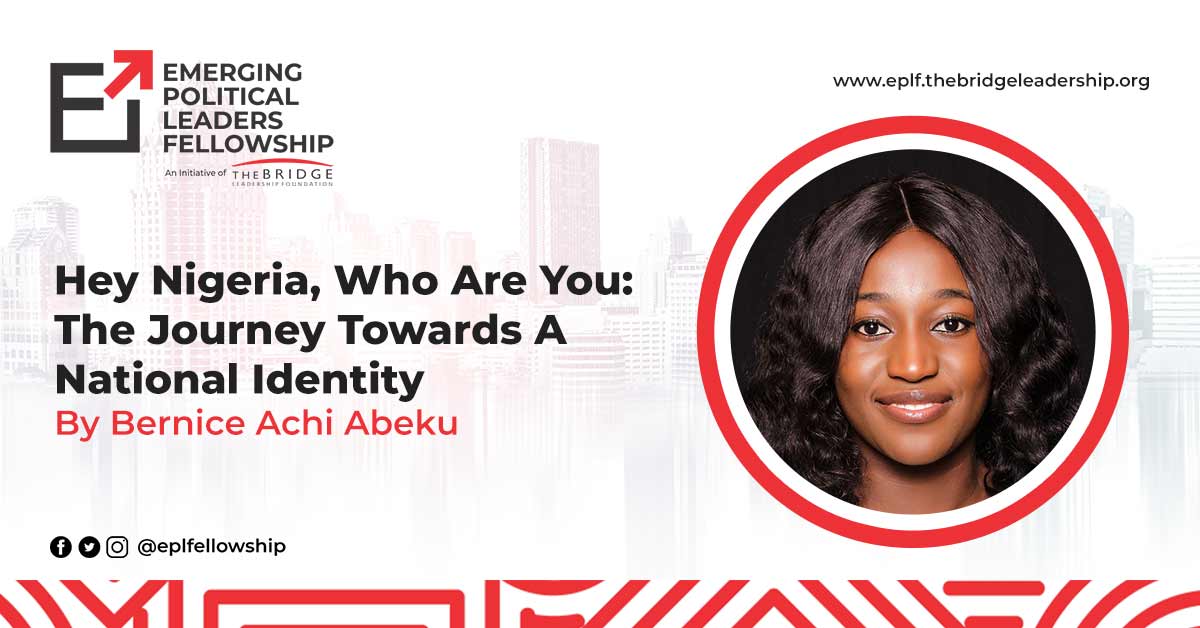Like a lot of people, I dread interviews. Chiefly because I get asked the simplest and yet horrid question, ‘who are you?’. Answering this is no small feat. It requires that at the very core, one has an in-depth awareness of him/herself and finds a way to clearly articulate it. Just like people, Nations need this as well. A Nation’s identity should be the first thing that comes to mind when conversations about it arise. According to Wikipedia, it is the sense of a Nation as a cohesive whole, represented by distinctive traditions, historical culture, moral values, beliefs and National sovereignty; the subjective feeling one shares with a group about a nation, regardless of one’s legal citizenship status. In order words, a distinct unifier.
The importance of National identity to socio-economic development in a Nation cannot be overemphasised. This is because it fosters cohesion and values in the polity, the mother of which is patriotism. An atmosphere of oneness paired with a sincere love for God-and-country wards off strife, ethnic clashes, corruption and insecurity thus, giving room for peace, progress and development. Sadly, the antithesis of this beautiful picture is the scene in Nigeria, no thanks to the lack of a unifying identity.
For Nigeria, it is disturbing that after 62 years of independence, we are yet to find that cord that binds us. History is a key ingredient in the making of a Nation’s identity and retracing our steps through the pre-colonial era, amalgamation, independence and civil war, we find that the events in Nigeria’s history, actions and in-actions of leaders and elite have played a major role in strengthening the socio-ethnic divides that plague us. Unfortunately, many Nigerians are also unaware of our history.
The author Chaim Potok said, “if you don’t know the past, you cannot understand the present and plan properly for the future”. Thus, it is imperative that government prioritises the need to provide fora (on-site and virtual) that allow Nigerians from all ethnicities and religions to gather and discuss the events (aftershocks of the war, elite consensus etc.) of the past and challenges of the present, that impede on national unity and how to surmount them. Only through these conversations, will we understand who we are and where we are headed as a people.
Furthermore, it is important that all aspects of society (families, traditional and religious institutions, formal education and elite) are used as a means of educating the populace about our history, what it represents, the values we uphold and the future we anticipate.
Above all, governments at all levels should uphold equity and fairness in appointments, policies and their implementations. This would set the precedence for the people to walk in the steps of leadership.
In the light of Nigeria’s current reality of numerous ethnic fault lines, the urgency of these, cannot be overemphasised. Will Nigeria remain that applicant stuttering in response to ‘who are you?’
Written by Bernice Achi Abeku


Comments (4)
I liked the piece.
Sultriness in it’s raw form and straight aim to the reader.
The writer (Bernice Achi Abeku) succeeded in demystifying the mystery behind the WHO ARE YOU mark.
What a way to speak to Nigerians in a near hopeless situation!
Kudos!
Fen G
Thanks for stopping by to read.
Good line of thoughts, Nigeria has a beautiful diverse population. Understanding our history is the road map to a unified nation. Understanding our diversities and considering these diversities as strengths for us as a nation is key to answering this.
Thanks for the comment
Comments are closed.